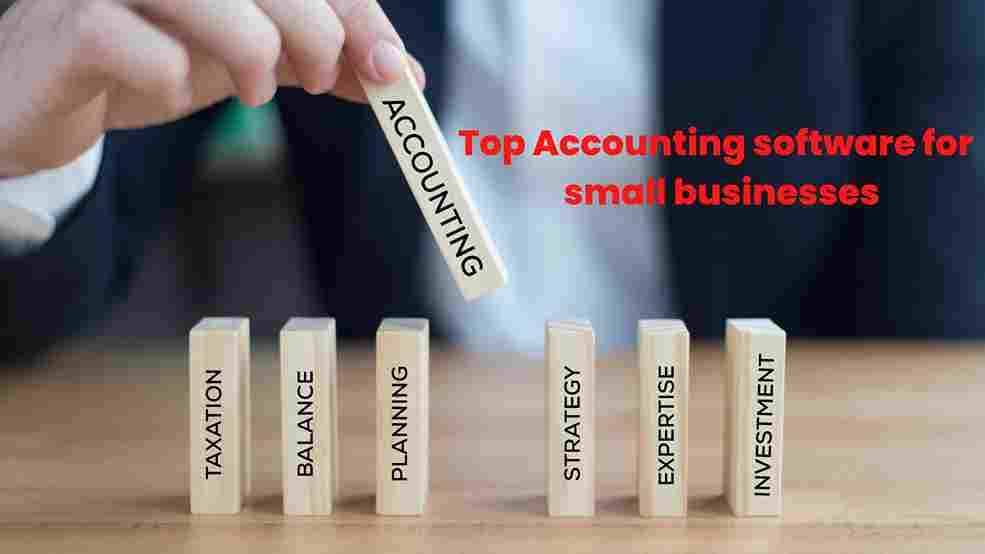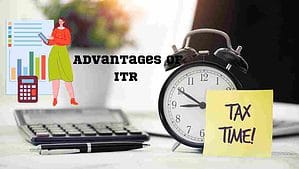In this article, we will explore the Top 8 Accounting Software for Small Businesses in 2025: Boost Your Organization’s Performance, and Productivity and Save Time and Money.
Accounting software is one of the key factors in the success of the organization and in making the organization more effective and productive.
Growing digitalization has created startup opportunities and built a world that is more communicative and engaging.
There are vast numbers of accounting software available for small, prominent, and freelancing entrepreneurs.
The 8 Best Accounting Software for Small Businesses that can help your business with accounts payable and receivable management, transparent business picture, and real-time analytics.
The 8 Best Accounting Software for Small Businesses of 2025
In this article, we have shared the 8 best accounting software for small businesses this software will boost the organization’s performance, and productivity, and clear picture of the business, and save time and money.
1. Quick Books Online
QuickBooks is an accounting software package that was introduced in 1983, developed, and marketed by Intuit.
QuickBooks Online serves small and medium-sized businesses and offers cloud-based accounting and on-premises accounting applications.
QuickBooks online is competent enough to accept business payments, manage and pay bills, and payroll functions.
Advantages of using QuickBooks online
+ Quickbooks Online available in the App
+ No backup and your data is secure
+ Online chat system
+ Better data sharing with your employees and accountant
+ Online bill management
+ Track income and expenses
+ Tax deductions
+ Business reporting
+ Built-in invoicing
2. XERO
Zero is cloud-based accounting software for small and medium-sized businesses.
The company was founded in 2006, in Wellington. New Zealand and expansion in Australia, the United Kingdom, and the United States.
Xero accounting software will help with daily bookkeeping, migration from other tools, and end-of-the-year tax preparations.
Advantages of using Xero online
+ Xero offers cloud accounting, no need to store files on the computer
+ Safe and secure
+ Operate account from anywhere
+ Enjoy the benefits of free product updates
+ Easy collaboration
+ User friendly
+ Currency conversion a snap
+ Customized report
+ You can link bank accounts for automatic update
3. FreshBooks
FreshBooks is an accounting software founded in 2003 by 2ndSite Inc, in Toronto, Canada, and works for small and medium-sized businesses.
FreshBooks’ 30 million users, small business owners, and accountants worldwide prefer invoicing and accounting software for their needs.
Advantages of using FreshBooks online
+ Faster invoicing
+ Automatic collaborations
+ Compatible with other software
+ Recurring billing
4. Melio
Melio accounting software for small and medium-sized businesses helps in collecting payments, tracking and controlling expenses, and managing business working capital.
Melio’s services are money-saving, time-saving, and focused on giving the best and easiest solution.
Advantages of using melio online
+ Free-to-use software
+ Melio offers reliable customer support
+ Get paid instantly
+ Melio offers efficient accounting
+ Organize documents to save time
5. Zip Books
Zip Books is a free online accounting software company that was founded in 2015 in America, Utah.
Zip Books is a cloud-based software accounting and bookkeeping service that assists small and medium business owners in processing credit cards, tracking finances, invoicing, billing, and business health scores.
Invoice Quality Score
Machine Learning
Recommendations
Smart Search
Advantages of using Zip Books online
+ Invoice Quality Score
+ Machine Learning
+ Recommendations
+ Smart Search
6. Wave
The Wave was founded in 2009, headquartered in the Leslieville neighborhood in Toronto Canada, and the company offers services like financial services and software for small businesses.
Wave Accounting offers free software that can help in your business bookkeeping and invoicing processes through a few internal integrations.
In India Wave company’s partnership with ZOHO serves businesses in India.
Advantages of using Wave Books online
+ Income and expenditure unlimited tracking
+ Featured with customizable sales taxes
+ You can link the end number of credit card and bank
+ Easy to export accounting reports and financial statements
+ Available dashboard for cash balances and invoice statuses
+ Transaction management and easy-to-upload digital receipts
7. OneUp
OneUp is an accounting software for small and medium businesses and banking all in one.
OneUp’s is vision to advance the banking portals for small and medium businesses.
Advantages of using OneUp Books online
+ Hasel-free accounting
+ Most updated inventory
+ Friendly customer relationship management
8. ZOHO Books
ZOHO Books is a more comprehensive small and medium business accounting software that is more advanced and transparent.
ZOHO books are tax-compliant accounting software that assists the business owner in managing receivables and payables.
ZOHO books are preferred accounting software for small and medium businesses because they offer end-to-end accounting, GST compliances, and an integrated platform.
Advantages of using ZOHO Books online
+ Zoho Books offers an affordable pricing plan with a customizable design for microbusinesses.
+ User-friendly, versatile, and multifunctional customer portal.
+Zoho offers entry-level software that grows with your small business
Why Accounting Software for Businesses?
Accounting software boosts business performance, productivity, efficiency, and effectiveness and makes the organization more advanced, updated, and transparent.
Accounting is key to the success of any business and accurate accounting gives a true picture of the business.
Accounting software reduces manpower, tracks materials records, controls expenses, and updates details of receivables and payables.
Methodology
We consider major elements while choosing the best accounting software for small businesses like features offered, and how they can benefit small businesses, after then look at the pricing structure and measure the affordability of software.
We often look at real customer reviews to measure marketing promises against real customer experiences.







